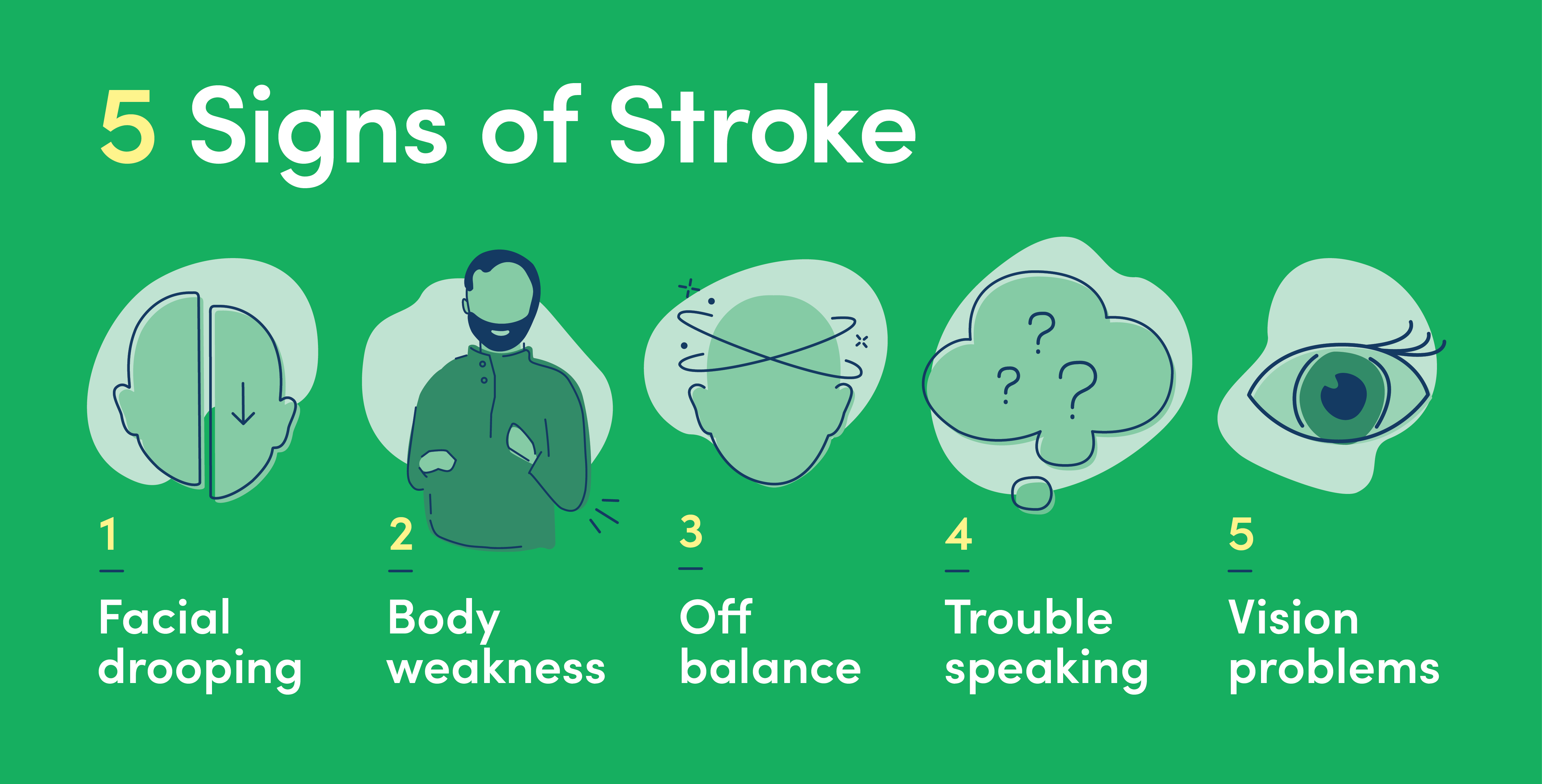What Is a Stroke?
A stroke is a medical emergency that happens when blood flow to the brain is suddenly interrupted or reduced. It prevents oxygen and other nutrients from reaching parts of the brain, causing brain cells to begin to die within minutes. It requires immediate treatment to reduce the risk of brain damage, long-term disability, or even death.
What causes a stroke?
Strokes happen when blood flow is blocked by a clot or a blood vessel bursts. There are three main types of stroke, identified by their causes:
- Ischemic stroke: This stroke occurs when a blood clot blocks a blood vessel that supplies blood to the brain.
- Hemorrhagic stroke: This life-threatening stroke is the result of a ruptured or leaking blood vessel in the brain. Bleeding within the brain tissue itself is called intracerebral hemorrhage and can be due to a head injury or high blood pressure. Bleeding into the space around the brain, called subarachnoid hemorrhage, can be caused by a head injury or an aneurysm.
- Transient ischemic attack (TIA): This type of stroke happens when blood doesn’t flow to the brain for a short period of time. It’s also known as a mini stroke because symptoms may go away quickly, but TIA can lead to a greater risk of a major stroke later on.
Stroke symptoms
There are telltale signs and symptoms when any of the three types of stroke occur. It’s critical to be able to spot them in yourself or a loved one and get emergency medical care immediately so doctors can begin specialized stroke treatments to help minimize damage and maximize the chances of recovery.

Stroke risk factors and prevention
Strokes affect people of all ages and ethnicities, but certain medical conditions and habits can put you at a higher risk for a stroke. One in three Americans have at least one risk factor, but you can help prevent a stroke by making healthy lifestyle changes and seeing your doctor.
AHN stroke treatment expertise
AHN Stroke Centers are specially equipped to treat strokes and other cerebrovascular diseases that affect blood flow to the brain. Our certified centers are located throughout western Pennsylvania and Erie.
Learn how to reduce your stroke risk
Talk with a doctor about your stroke risk factors and what you can do to help prevent a stroke. You can request an appointment with your current AHN primary care physician (PCP), or make an appointment with a new one near you by calling (412) DOCTORS (412) 362-8677.
You can also use our virtual appointment options for the most convenient appointment possible.
-
Appointments
(412) DOCTORS
Source: National Center for Biotechnology Information: Golden hour of acute ischemic stroke
Source: American Stroke Association.

